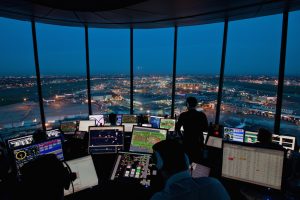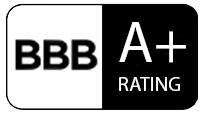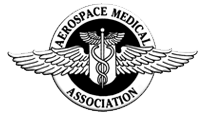
ATCS MEDICAL QUALIFICATION STANDARDS
Air Traffic Control Personnel – Series GS2152
INITIAL EMPLOYMENT
Applicants for initial appointment to air traffic control specialist positions must comply with the following requirements:
Eye
(1) The applicant must demonstrate: Distant visual acuity of 20/20 in each eye separately, without correction, or distant visual acuity of 20/200 or better in each eye separately, with correction to 20/20 in each eye. Glasses or contact lenses are permitted.
(2) The applicant must demonstrate: Near visual acuity of v=.50 (or equivalent according to table of equivalent scale) or better in each eye separately without correction or near visual acuity of v1.25 or better in each eye separately, with correction to v=.50 in each eye. Glasses or contact lenses are permitted.
(3) An applicant who must utilize both glasses and contact lenses to demonstrate acceptable near and distant vision is disqualified.
(4) The applicant must demonstrate normal color vision.
(5) The applicant must demonstrate normal central and peripheral fields of vision.
(6) If any medication is routinely required for control of intraocular tension, the applicant is disqualified.
(7) The applicant must demonstrate no hyperhoria or hypophia greater than one prism diopter.
(8) The applicant must demonstrate no esophoria greater than six prism diopters.
(9) The applicant must demonstrate no exophoria greater than six prism diopters.
(10) If examination, including tonometry, of either eye or adnexa reveals any form of glaucoma or cataract formation, uveitis, or any other acute or chronic pathological condition that would be likely to interfere with proper function or likely to progress to that degree, the applicant is disqualified.
(11) An applicant under any form of treatment for any chronic disease of either eye is disqualified.
(12) The applicant must demonstrate full range of motion of external ocular muscles.
Ear, Nose, Throat, Mouth
(1) Examination must show no outer, middle, inner ear disease, either acute or chronic, unilateral or bilateral.
(2) Examination must show no active disease or either mastoid.
(3) Examination must show no unhealed perforation of either eardrum.
(4) Examination must show no deformity of either outer ear that might interfere with the use of headphones of the applied or semiinserted type.
(5) Examination must show no disease or deformity of the hard palate, soft palate or tongue that interferes with enunciation. The applicant must demonstrate clearly understandable speech, and an absence of stuttering or stammering.
(6) The applicant must demonstrate, by audiometry, no hearing 1088 in either ear of more than 25 decibels in the 500, 1000, or 2000 HZ ranges and must demonstrate no hearing 1088 in these ranges of more than 20 decibels in the better ear using ISO (1964) or ANSI (1969) standards. Hearing loss in either ear of more than 40 decibels in the 4000 HZ range may necessitate an otological consultation. Incipient disease processes which may lead to early hearing 1088 will be a cause for disqualification.
Cardiovascular
(1) An applicant must have no medical history of any form of heart disease. The applicant must demonstrate absence of any form of heart disease to clinical examination including resting and postexercise electrocardiogram.
(2) An applicant must have blood pressure levels no greater than the appropriate values in the following table:
Maximum Reclining
Blood Pressure
| AGE | SYSTOLIC | DIASTOLIC |
| 20 to 29 | 140 | 90 |
| 30 to 39 | 150 | 90 |
| 40 to 49 | 150 | 100 |
| 50 and over | 160 | 100 |
(3) An applicant must demonstrate to Xray no evidence of increase in heart size beyond normal limits.
(4) An applicant under any form of treatment for any disease of the cardiovascular system is disqualified.
Neurological
(1) Applicant must have no medical history or clinical diagnosis of a convulsive disorder.
(2) Applicant must have no medical history or clinical diagnosis of a disturbance of consciousness without satisfactory medical explanation of the cause.
(3) Applicant must have no other disease of the nervous system that is found by the Federal Air Surgeon to constitute a hazard to safety in the Air Traffic Control System.
(4) An applicant under any form of treatment, including preventive treatment, of any disease of the nervous system, is disqualified.
Musculoskeletal
(1) The applicant must have no deformity of spine or limbs of sufficient degree to interfere with the requirements of the position of employment being sought. Certain limitations of range of motion may be acceptable for certain specific options or positions, in which case acceptance for employment will be noted specifically for that position or option only. (Terminal, Center, Flight Service Station.)
(2) The applicant must have no absence of any extremity or digit or any portion thereof sufficient to interfere with the requirements for locomotion and manual dexerity of the position being sought. Acceptance of limitations for employment for a specific option or position will be noted for that option or position only.
(3) The applicant must have no condition which predisposes to fatigue or discomfort induced by long periods of standing or sitting.
General Medical
(1) An applicant must have no medical history or clinical diagnosis or diabetes mellitus.
(2) The applicant must possess such a body build as not to interfere with sitting in an ordinary office armchair.
(3) The applicant must have no other organic, functional or structural disease, defect or limitation found by the Federal Air Surgeon to clinically indicate a potential hazard to safety in the Air Traffic Control System. A pertinent history and clinical evaluation, including laboratory evaluations will be obtained and when clinically indicated, special consultations or examinations will be accomplished.
Psychiatric
The applicant must have no established medical history or clinical diagnosis of any of the following:
(1) A psychosis;
(2) A neurosis;
(3) Any personality disorder or mental disorder that the Federal Air Surgeon determines clearly indicates a potential hazard to safety in the Air Traffic Control System. The determinations will be based on the medical case history (including past social, and occupational adjustment) supported by clinical psychologists and board certified psychiatrists, including such psychological tests as may be required as a part of medical evaluation as the Federal Air Surgeon may prescribe.
Substance Dependency
A history, review of all available records, clinical and laboratory examination will be utilized to determine the presence or absence or substance dependency, including alcohol, narcotic, and non-narcotic drugs. Wherever clinically indicated, the applicant must demonstrate an absence of these on thorough psychiatric evaluation, including any clinical or psychological tests required as part of the medical evaluation.
UNITED STATES OFFICE OF PERSONNEL MANAGEMENT AIR TRAFFIC CONTROL SERIES
RETENTION REQUIREMENTS
The physical requirements in this section apply to:
(1) air traffic control specialists in the center and terminal specializations who are actively engaged in the separation and control of air traffic;
(2) immediate supervisors of air traffic control specialists actively engaged in the separation and control of air traffic; and
(3) air traffic control specialists in the station specialization who regularly perform flight assistance services as described under Description of Work.
Employees occupying the type of positions described above are required to requalify in a medical examination given annually, usually during the employee’s month of birth. Controllers incurring illness, injury, or incapacitation at any time between the annual examinations are required to be medically cleared before return to air traffic control duty. Examinations including laboratory tests and consultations, will be accomplished to the extent required to determine medical clearance for continued duty. New employees are required to meet the retention requirements by examination during the first ten months of service.
Those who are found to be not physically or emotionally qualified for air traffic control duties at any time will be subject to reassignment to a position for which they are fully qualified, retirement for disability if eligible, or separation from the service.
To be medically qualified for retention in the Federal Aviation Air Traffic Service, an air traffic control specialist must meet the following requirements. (Unless otherwise indicated these requirements are identical for all air traffic control specialists.)
Eye
(1). Distant Visual Acuity
a. Terminal The terminal specialist must demonstrate: Distant visual acuity of 20/20 or better in each eye separately, without correction, or distant visual acuity of 20/200 or better in each eye separately, with correction to 20/20 or better in each eye.
b. Center The center specialist must demonstrate: Distant visual acuity of 20/20 or better in each eye separately, without correction, or distant visual acuity of 20/200 or better in each eye separately, with correction to 20/20 or better in each eye.
b. Flight Service Station. The station specialist must have distant visual acuity of 20/20 or better in each eye separately, with or without correction.
(2) Near Visual Acuity. all air traffic control specialists must demonstrate near visual acuity of v=.75 or better (or equivalent according to table of equivalents scale) in each eye separately with or without correction
Scale
J1 0.59 20/20 .50
J4 .75 20/30 .75
J6 1.00 20/40 1.00
J8 1.25 20/50 1.25
J10 1.50 20/60 1.75
J12 1.75 20/70 2.00
(3) Color Vision. all specialists must demonstrate normal color vision.
(4) Visual Fields
a. Terminal. The terminal specialist must demonstrate normal fields of vision.
b. Center. The center specialist must demonstrate normal fields of vision.
c. Flight Service Station. The station specialist must demonstrate normal central fields of vision.
(5) Phorias; Double Vision
a. Terminal. The terminal specialist must have no esophoria or more than 6 prism diopters or exophoria of more than 6 prism diopter or hypophoria or hyperhporia or more than one prism diopter.
b. Center. The center specialist must have no esophoira of more than 6 prism diopters or exophoria of more than 6 prism diopters hyperporia or hypophoria or more than one prism diopter.
c. Flight Service Station. The station specialist must have no condition which causes double vision.
(6) Intraocular Tension; Glaucoma; Eye Pathology all specialist must demonstrate normal introcular tension by tonometry. Must have no form of glaucoma in either eye and no other chronic pathological condition of either eye or adnexa that would be likely to interfere with proper function.
(7) Medication for Control of Intraocular Tension must require no routine medication for control of intraocular tension.
Ear, Nose, and Throat
(1) Ear Disease; Equilibrium
a. Terminal. The terminal specialist must demonstrate no chronic disease of the outer or middle ear, unilateral or bilateral, that night interfere with the comfortable, efficient use of the standard headphone apparatus or that might interfere with accurate perception of voice transmissions or spoken communications. Must have no ear disease that might cause a disturbance of equilibrium.
b. Center. The center specialist must demonstrate no chronic disease of the outer or middle ear, unilateral or bilateral, that might interfere with the comfortable, efficient use of standard headphone apparatus or that might interfere with accurate perception of voice transmissions or spoken communications. Must have no ear disease that might cause a disturbance or equilibrium.
c. Flight Service Station. The station specialist must demonstrate no chronic disease of the outer of middle ear, unilateral or bilateral, that might interfere with accurate perception of voice transmissions or spoken communications. Must have no ear disease that might cause a disturbance of equilibrium.
(2) Mastoid must have no active disease of either mastoid.
(3) Eardrum Perforation must demonstrate no unhealed perforation of either eardrum.
(4) Speech must have no interference with enunciation and must have clear speech free of stuttering or stammering.
(5) Hearing Loss must have no hearing loss in either ear of more than 30 decibels in either the 500, 1000, or 2000 HZ ranges. He must have no loss in these ranges greater than 25 decibels in the better ear. Nonstatic hearing loss in either ear of greater than 50 decibels in the 4000 HZ range will require an otological consultation.
Cardiovascular
(1) Heart Disease
a. Terminal. The terminal specialist must have no history or symptomatic form of heart disease or any form requiring therapy.
b. Center. The center specialist must have no history or symptomatic form of heart disease or any form requiring therapy.
c. Flight Service Station. The station specialist must have no symptomatic form of heart disease.
(2) Disturbance of Rhythm; Other Abnormality; EKG must demonstrate no disturbance of rhythm or other cardiac abnormality on clinical examination including resting and when clinically indicated, postexercise electrocardiography.
(3) Blood Pressure must demonstrate blood pressure levels no greater than the appropriate values in the following table. Must require no medication for control of blood pressure.
Maximum Reclining Blood Pressure
Age Systolic Diastolic
20 to 29 140 90
30 to 39 150 90
40 to 49 150 100
50 and over 160 100
(4) Heart size must have no increase in heart size beyond normal limits.
Neurological
(1) Convulsive Disorder must have no medical history or clinical diagnosis of a convulsive disorder.
(2) Disturbance of Consciousness must have no medical history or clinical diagnosis of a disturbance of consciousness without satisfactory medical explanation of the cause.
(3) Cerebrovascular Accident must have no history of a cerebrovascular accident. Must have no cerbrovascular condition which increases the likelihood of such an accident.
(4) Other Neurological Disorders must have no other neurological disorder that is found by the Federal Air Surgeon to constitute a hazard to safety in the Air Traffic Control System.
(5) Treatment for Nervous System Disorder must be under no form of treatment, including preventive treatment, of any disorder of the nervous system.
Musculoskeletal
(1) Ranges of Motion must have no deformity of spine or limbs that interferes with satisfactory and safe performance of duty.
(2) Amputations; Dexterity must have no absence of any extremity or digit or any portion thereof sufficient to interfere with satisfactory and safe performance of duty.
(3) Predisposition to Fatigue and/or Discomfort must have no condition which predisposes to fatigue or discomfort induce by long periods of standing or sitting.
General Medical
(1) Diabetes Mellitus
a. Terminal. The terminal specialist who has an established clinical diagnosis of diabetes mellitus will be evaluated for continued duty based upon the degree of control of the disease. Whether by diet alone, or diet and hypoglycemic drugs, control which results in the absence of symptoms and the absence of complications of the disease or the therapy, may be considered as satisfactory control. A controller with diabetes mellitus who cannot demonstrate satisfactory control over specified and observed periods of 48 hours is not cleared for duty involving active air traffic control.
b. Center. The center specialist who has an established clinical diagnosis of diabetes mellitus will be evaluated for continued duty based upon the degree of control of the disease. Whether by diet alone, or diet and hypoglycemic drugs, control which results in the absence of symptoms and the absence of complications of he disease or the therapy, may be considered as satisfactory control. A controller with diabetes mellitus who cannot demonstrate satisfactory control over specified and observed periods of 48 hours is not cleared for duty involving active air traffic control.
c. Flight Service Station. The station specialist who has established clinical diagnosis of diabetes mellitus will be evaluated for continued duty based upon the degree of control of the disease. Whether by diet alone, or diet and hypoglycemic drugs, control which results in the absence of symptoms and the absence of complications of the disease or the therapy, may be considered as satisfactory control.
(2) Body Configuration must possess such a body build as not to interfere with sitting in an ordinary office armchair.
(3) Other Medical Conditions must have no other organic, functional or structural disease, defect or limitation found by the Federal Air Surgeon to clinically indicate a potential hazard to safety in the Air Traffic Control System. A pertinent history and clinical evaluation including laboratory screening will be obtained, and when clinically indicated, special consultations and examinations will be accomplished.
Psychiatric
(1) Psychotic Disorder must have no established medical history or clinical diagnosis of a psychosis.
(2) Mental, Neurotic, or Personality Disorder must have no neurosis, personality disorder, or mental disorder that the Federal Air Surgeon determines clearly indicates a potential hazard to safety in the Air Traffic Control System. The determinations will be based on the medical case history (including past, social, and occupational adjustment) supported by clinical psychologists and board certified psychiatrists, including such psychological test as may be required as a part of medical evaluation, as the Federal Air Surgeon may prescribe.
(3) Alcoholism and/or Alcohol Abuse must have no clinical diagnosis of alcoholism or alcohol abuse, since these constitute a hazard to safety in Air Traffic Control System. A history and clinical evaluation, including laboratory evaluation (when indicated) will be accomplished to determine the presence or absence of alcohol addiction, dependency, habituation, abuse or use.
(4) Addition, Dependency, Habituation, or Abuse of Dangerous Drugs must have no clinical diagnosis of addiction, habituation, dependency or abuse of any narcotic or non-narcotic drug, since these constitute a threat to safety in the Air Traffic Control System.
A history and a clinical evaluation, including laboratory evaluation (when indicated) will be accomplished to determine the presence or absence of drug addiction, dependency, habituation, abuse or use.
Pilot Medical Solutions manages ATC medical outcomes.



